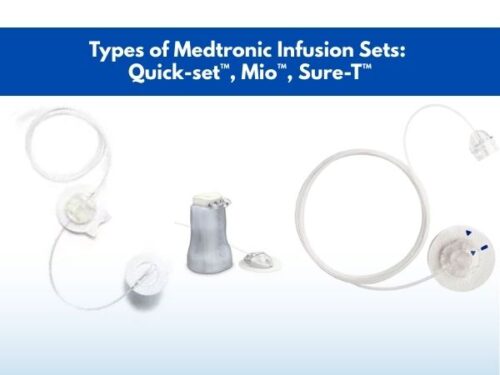Using Flonase or Nasacort for Spring Hay Fever | Complete Details

Every year, as soon as the weather starts changing, a sharp spike in the cases of flu, cough, cold, seasonal allergies, as well as fever is observed. These health conditions, although not extremely fatal, are indeed responsible for a large number of mortalities according to CDC. Therefore, it is essential to take good care of a person who is experiencing such symptoms. One such condition is allergic rhinitis or, as it is commonly called, hay fever. Multiple treatment options are available when it comes to the alleviation of hay fever including oral medications as well as nasal sprays, two of which are Flonase and Nasacort spray. Let us take a brief look at what hay fever is and what are our options in case of an allergy.
What is hay fever?
Hay fever is an allergic reaction caused mainly due to different allergens in the air. Once your mouth, nasal cavity, throat, or eyes are exposed to these environmental allergens, the redness, sneezing, and discomfort start. This condition is also known as allergic rhinitis.

Hay fever
Causative agents of hay fever
Multiple environmental allergens are associated with the incidence of hay fever. These include:
- Pollen i.e. a fine powdery mass coming from the flowers of plants
- Dust mite
- Mold
- Animal dander
Symptoms of hay fever
A person affected by allergic rhinitis may exhibit the following symptoms:
- Stuffed or runny nose
- Sneezing
- Cough
- Sore throat
- Increased sputum production
- Allergic conjunctivitis i.e. itching in the eyes resulting in redness and wateriness
Treatment options for hay fever
To treat hay fever, the following remedies can be tried:
- Eliminate the exposure to the allergens responsible for the condition
- Rinse the nasal cavity with normal saline
- Drink plenty of water and warm drinks such as ginger and garlic tea
- Consume honey, turmeric, and foods rich in omega-3
- Use OTC medications
Among the medications, anti-histamines and nasal sprays are the preferred options which have been discussed below:
Flonase nasal spray
Flonase, a brand of corticosteroid named ‘Fluticasone propionate’, is a nasal spray intended to be used in the treatment of hay fever. A single dose of Flonase administered via nasal route carries 50 mcg of the active pharmaceutical ingredient. It can be purchased without a prescription i.e. it is a treatment option which is available over-the-counter or OTC.
Nasacort nasal spray
Nasacort is another over-the-counter corticosteroid-based nasal spray intended to be used for allergic rhinitis. It works by relieving the nasal congestion thus the associated symptoms are also alleviated. Nasacort carries a glucocorticoid named ‘Triamcinolone acetonide’, a 55 mcg dose of which is received by a patient upon a single puff.
Corticosteroid-based nasal spray vs oral anti-histamines
When it comes to a comparison with commonly used anti-histamines for the relief of allergic rhinitis, the Flonase and Nasacort sprays have been proven to be superior owing to their lesser side effects. Moreover, adverse reactions such as dry mouth, dryness, and blurriness of the eyes, as well as drowsiness which are commonly experienced with anti-histamines can be completely avoided by replacing the oral therapy with Flonase or Nasacort nasal spray.
Side effects of Flonase and Nasacort nasal sprays
The side effects of Flonase as well as Nasacort nasal spray are, although less pronounced, identical and are enlisted as follows:
- Headache
- Cough
- Sore throat
- Burning and irritation of the nasal cavity
- Nasal bleeding
- Damaged nasal mucosa
- Glaucoma
- Cataract
- Delayed wound healing
- Diminished activity of the immune system
Contraindications
People who have a medical history or an existing state of the following health conditions should avoid the use of Flonase or Nasacort nasal spray:
- Nasal surgery
- Glaucoma or other eye infections
- Untreated or under-treatment bacterial, viral, or fungal infection
- Compromised immune system
- Being on anti-HIV therapy
Comparison of Flonase and Nasacort nasal sprays
Although both Flonase and Nasacort are quite similar in their functionality, use, and side effects, a comparison has to be made in order to evaluate minor differences between them which have been enlisted in the following table:
| Parameters | Flonase nasal spray | Nasacort nasal spray |
| Active ingredient | Fluticasone propionate | Triamcinolone acetonide |
| Dose (per puff) | 50 mcg | 55 mcg |
| Route of administration | Nasal | Nasal |
| Duration of use before consulting a physician | 2 months for adults, 2 months for children | 1 week |
| Availability | OTC | OTC |
| Indication | Seasonal allergies | Seasonal allergies |
| Suitability for pediatrics | Suitable for children aged 4 years or above | Suitable for children aged 2 years or above |
| Distinct side effects | – | Pins and needles sensation in the hands as well as feet |
| Efficacy | Not less than that of Nasacort | Not less than that of Flonase |
| Tolerance | Well-tolerated | Well-tolerated |
When to see a doctor?
In case of an allergic reaction that persists for more than 7 days and does not subside after the use of oral or nasal therapy, it is time to consult a physician for medical advice.
Conclusion
Hay fever is a common occurrence during the time when the weather is changing towards the colder side. It can cause extreme discomfort to the patient who can have a cough, flu, itchy eyes, runny nose, and sometimes, fever as well. Anti-histamines have been prescribed orally for the treatment while newer and somewhat better options are being marketed nowadays which include corticosteroid-based nasal sprays i.e. Flonase and Nasacort. Both are equally effective in rhinitis and provide quick relief with minimum side effects. As there is no significant difference in efficacy, the patient may choose one of them based on the price difference as well as personal liking.



















